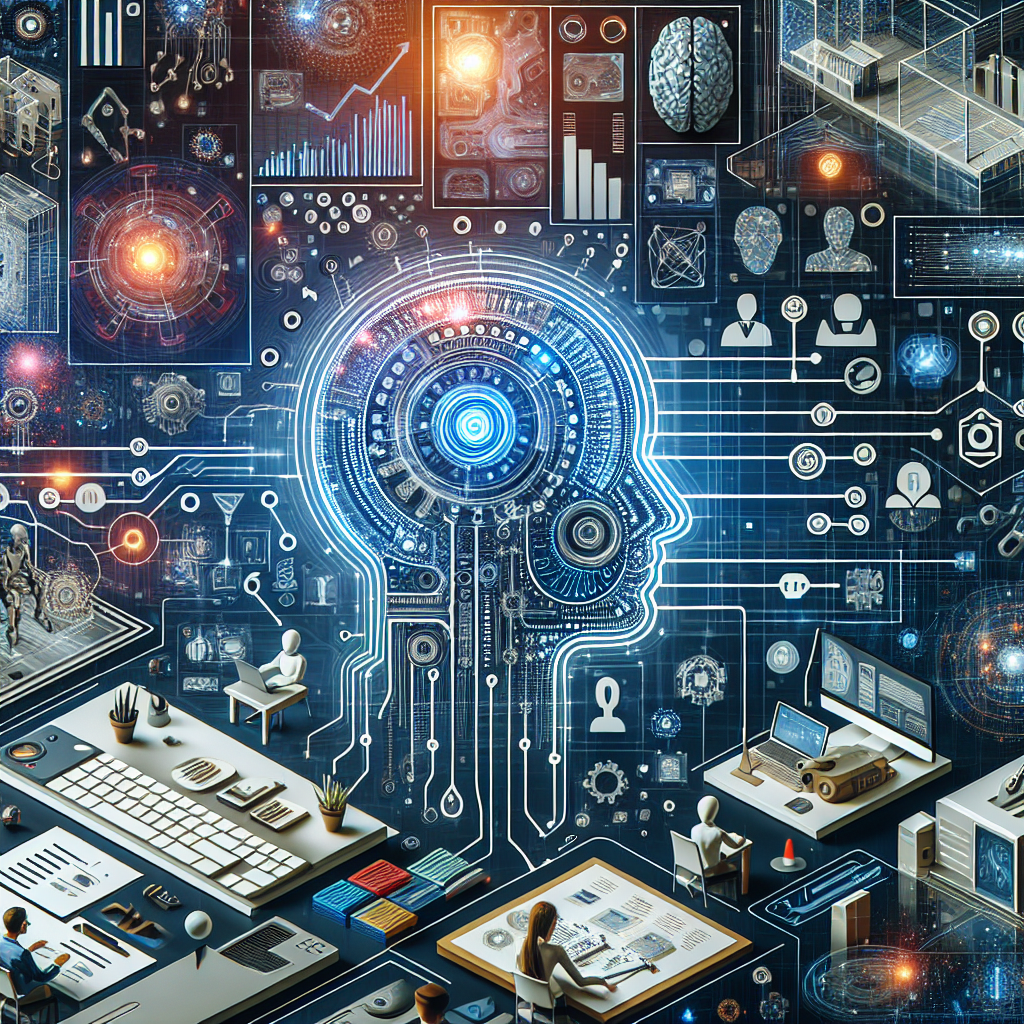Artificial General Intelligence (AGI) is a concept that has long been the subject of science fiction, but in recent years, it has become a topic of serious discussion among researchers and technologists. AGI refers to a form of artificial intelligence that possesses general cognitive abilities comparable to those of humans, allowing it to understand and learn any intellectual task that a human being can. This level of intelligence goes beyond the specialized capabilities of current artificial intelligence systems, which are typically designed to perform specific tasks or functions.
The potential impact of AGI on the future of work is a topic of much debate and speculation. Some experts believe that AGI has the potential to revolutionize the way we work, leading to greater productivity, efficiency, and innovation. Others fear that AGI could lead to mass unemployment as machines take over human jobs. In this article, we will explore the implications of AGI for the job market and what it means for the future of work.
AGI and the Job Market
The impact of AGI on the job market is a complex and multifaceted issue. On one hand, AGI has the potential to automate a wide range of tasks and activities that are currently performed by humans. This could lead to significant job displacement in industries that rely heavily on manual labor or routine tasks. For example, AGI could potentially replace truck drivers, factory workers, and customer service representatives, among others.
On the other hand, AGI also has the potential to create new job opportunities and industries that do not currently exist. As machines become more intelligent and capable of performing complex tasks, they will also create new opportunities for humans to work alongside them, designing, developing, and maintaining AGI systems. Additionally, AGI could lead to the creation of entirely new fields and industries that we cannot currently imagine.
One of the key challenges of AGI is ensuring that the benefits of this technology are shared equitably among all members of society. If AGI leads to widespread job displacement, it could exacerbate existing inequalities and create social unrest. It will be crucial for policymakers, businesses, and society as a whole to consider the ethical and social implications of AGI and to develop strategies for ensuring that the benefits of this technology are distributed fairly.
FAQs
Q: Will AGI replace all human jobs?
A: While AGI has the potential to automate many tasks currently performed by humans, it is unlikely to replace all human jobs. Some tasks, such as those that require creativity, emotional intelligence, or human interaction, are likely to remain the domain of humans for the foreseeable future.
Q: How will AGI impact the economy?
A: The impact of AGI on the economy is difficult to predict with certainty. Some experts believe that AGI could lead to increased productivity and economic growth, while others fear that it could lead to mass unemployment and economic upheaval. It will be crucial for policymakers to monitor the impact of AGI on the economy and to develop strategies for managing any potential disruptions.
Q: What skills will be most important in a world with AGI?
A: In a world with AGI, skills that are difficult for machines to replicate, such as creativity, critical thinking, and emotional intelligence, are likely to become more valuable. Additionally, skills related to designing, developing, and maintaining AGI systems will be in high demand.
Q: How can individuals prepare for the impact of AGI on the job market?
A: Individuals can prepare for the impact of AGI on the job market by developing a diverse set of skills that are difficult for machines to replicate. This may include skills related to creativity, critical thinking, emotional intelligence, and problem-solving. Additionally, individuals can stay informed about developments in AGI and seek out opportunities to learn about this technology and its potential impact on their industry.
In conclusion, AGI has the potential to revolutionize the way we work, leading to greater productivity, efficiency, and innovation. However, it also presents challenges and risks, including job displacement and economic disruption. It will be crucial for policymakers, businesses, and society as a whole to consider the ethical and social implications of AGI and to develop strategies for ensuring that the benefits of this technology are shared equitably among all members of society. By taking a thoughtful and proactive approach to the development and deployment of AGI, we can harness the potential of this technology to create a more equitable and prosperous future for all.

